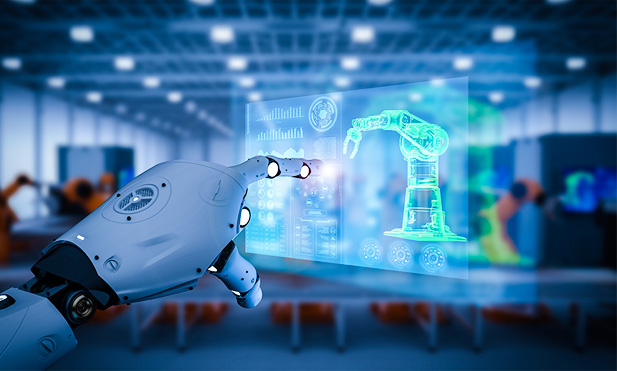

To meet the needs of industrial development in China, Tsinghua University merged related disciplines to form the Department of Automation in 1970. Since its establishment, the Department of Automation has made outstanding contributions to the modernization of various industries in China. It has thus evolved into a hub for cultivating highly skilled personnel and driving technological innovation in the field of automation. Also, it takes the lead in advancing the education of Automation and the Discipline of Control Science and Engineering in China. In the future, the Department will continue its relentless pursuit of establishing a world-class discipline, aiming to make substantial contributions to national economic development and global technological advancements.

The first-level (major) discipline in the Department of Automation is known as "Control Science and Engineering". In 1998, the Department of Automation was part of the first group of academic institutions authorized to confer doctorate degrees in the first-level disciplines in China. In 2007, the Department was again part of the first group of institutions [approved to be the first-level key disciplines] in China, as it demonstrates comprehensive academic strength, encourages diverse interdisciplinary innovations, and exhibits broad prospects for development. Two second-level disciplines including “Control Theory and Control Engineering” and “Pattern Recognition and Intelligent System”, were ranked first in the national key discipline evaluation in 2001. The discipline of "Control Science and Engineering" ranked first in two national first-level discipline evaluations in 2006 and 2012, respectively. In the national first-level discipline evaluation in 2016, the discipline of "Control Science and Engineering" was rated as A+, the highest level in China. At present, the Department offers the first-level discipline from eight areas of study, namely, "Control Theory and Control Engineering", "Pattern Recognition and Intelligent System", "Systems Engineering", "Detection Technology and Automation Device", "Navigation, Guidance and Control", "Industrial Intelligence and Systems", "Bioinformatics" and "Brain and Cognitive Science".
The Department of Automation has a team of exceptional faculty members. As of 2020, the Department of Automation has a total of 89 faculty members, including 40 professors/researchers, 40 associate professors/associate researchers, and 9 assistant professors/assistant researchers. Among them, there are 2 academicians of the Chinese Academy of Sciences, 2 academicians of the Chinese Academy of Engineering, 2 recipients of the National Distinguished Teacher Award, 3 Distinguished Changjiang Professors of the Ministry of Education, 12 recipients of the National Distinguished Youth Fund, and 12 recipients of the National Outstanding Youth Fund. The Department has also invited two chair professors, Professor He Yuqi, an internationally famous control scientist, the academician of the National Academy of Engineering, the foreign academician of both Chinese Academy of Sciences and Chinese Academy of Engineering, and the professor of Harvard University, and Professor W.S. Waterman, an internationally renowned bioinformatics and systems biologist, the academician of the American Academy of Sciences, and the professor of University of Southern California. Academician Song Jian, a famous control scientist and former president of Chinese Academy of Engineering), Academician Guo Lei, a famous control theorist, Researcher Ma Songde,, Academician Wu Hongxin and General Sun Bolin, famous pattern recognition scientists, are invited to serve as part-time professors. Professor Tan Zizhong, an internationally renowned automation and robotics scientist and the professor of the University of Washington, and Professor Shankar Sastry, academician of the National Academy of Engineering and the professor of University of California, Berkeley, are invited to serve as visiting professors. Professor He Yuqi's Chair Professorship Group of the Department of Automation was also the first of its kind in Tsinghua University.
The Department of Automation has a long-standing tradition and a strong foundation in undergraduate education. It is also one of the earliest academic departments in China to offer and develop courses in the field of automation. Under the unwavering hard work and leadership of a group of famous academics and distinguished teachers in education, the Department of Automation has consistently been a leader in the education of automation nationwide. The Department has embraced the mantra of "sincerity, open-mindedness, concreteness and innovation" in nurturing talent, which fully reflects the unique characteristics of this discipline. In recent years, with the emphasis on building a research-oriented university and the continuous teaching reforms, the Department has identified “intelligence” and “system” as the designated development direction for the field of automation, according to the "13th Five-Year Plan of China". Major changes were made to the undergraduate program in 2017, emphasizing the importance of core courses, strengthening the practical training component, and introducing self-development courses. In the development of new educational models, new teaching resources have been introduced, and there has been an expansion of various teaching methods, including online teaching. These efforts have effectively promoted personalized student development.
The Department of Automation always emphasizes graduate education and teaching, maintains a strong tradition of excellence in teaching, and has a team of exceptional faculty members, renowned both domestically and internationally. Throughout the years, while overseeing graduate education and pedagogy, the Department of Automation has consistently followed the "trinity" model of talent cultivation with a comprehensive combination of general education, fundamental disciplines education and professional education. It actively engages in a number of graduate education and teaching reform projects. It implements international dual degree programs, fosters the establishment of domestic and overseas graduate student internship platforms, and innovates mechanisms for professional graduate training. The Department encourages graduate students to address challenges at the forefront of science and address difficult issues within the discipline. This training helps them to become the driving force behind important scientific research activities within the department, leading to continuous improvement in the quality of doctoral theses. It also cultivates a large pool of outstanding talent for the nation.
The Department of Automation places a strong emphasis on original and interdisciplinary fundamental research. It is dedicated to addressing the strategic development needs of the nation and making significant contributions to the technological advancements of the country. The Department has achieved numerous original achievements and has made exceptional contributions in technological domains of critical national importance. Since its establishment, the Department of Automation has undertaken hundreds of state-level scientific research projects, 62 of which reached advanced levels internationally, and 41 of which are originally initiated in China. The Department has won 32 state-level awards, including National Natural Science Awards, State Technological Invention Awards, State Science and Technology Progress Awards, and 53 provincial-level awards.
In recent years, the Department has experienced a steady increase in the quantity and quality of its research paper . From 2000 to 2018, a total of 2,177 papers were indexed in the SCI. Notably, four papers were published in the prestigious journal Nature. The department places a strong emphasis on technology transfer and commercialization, aiming to meet the practical needs of industries and promote the application of research outcomes in real-world contexts. It has obtained more than 730 domestic patents from 2000 to 2019. From 2009 to 2019, the department has achieved 209 computer software copyright registrations, and published more than 70 monographs.
Research projects play a vital role in for scientific exploration and the nurturing of exceptional talents, serving as an important driving force behind advancements in the field of automation. During the past 20 years, the Department has hosted or participated in more than 360 national natural science funds, including 2 innovative research groups, 8 national major research equipment development projects, 11 outstanding youth funds, 3 major projects, 30 key projects, and 12 outstanding youth science funds. The department has led 164 projects from the Ministry of Science and Technology, including 63 national key research and development programs, 46 national 863 programs, 10 national 973 programs and 32 national science and technology support programs. It has a contracted fund of more than 10 million yuan, with 15 major transversal research projects. The amount of funding for scientific research the Department obtained in 2019 has already reached 248 million yuan.
The Department of Automation places great emphasis on cooperation with renowned international universities and research institutions. It invites distinguished scholars from abroad to deliver lectures and engage in cooperative research endeavors. Furthermore, faculty members are encouraged to visit esteemed institutions such as the Massachusetts Institute of Technology (MIT), Harvard University, Yale University and other prestigious academidic centers. The Department also proactively encourages and supports its faculty members and students to participate in diverse international academic conferences. During their undergraduate studies, numerous students have the opportunity to visit prestigious universities broad, such as Harvard University, Massachusetts Institute of Technology, Stanford University, Oxford University. Many faculty members hold important positions in international academic societies, highlighting their recognition in the global scholarly community.
Throughout the last five decades since the establishment of the Department of Automation, its students have upheld the motto of "Self-discipline and Social Commitment" and the spirit of "Actions Speak Louder Than Words" embraced by Tsinghua University. Inheritating the traditional ethos of "self-consciousness, self-discipline and self-improvement" within the Department, a profound spirit of "struggle, sacrifice and self-reflection" has taken root and flourished. This collective mindset has led to the development of a distinct "ZiDong" culture, deeply rooted in the above mentioned core values. In response to the evolving characteristics and trends in youth development, the Department of Automation emphasizes on guiding students' thinking, fostering collective growth, and prioritizing their long-term development. To achieve these objectives, the department actively promotes student engagement in activities such as sports and arts, student-led science and technology events, and internship and job search programs. In the new era, by fostering a nurturing environment, encouraging excellence, and embracing innovative approaches, the department strives to cultivate exemplary individuals, make remarkable achievements, and drive innovation in education.
As of the year 2020, the Department of Automation has educated a total of 12,699 students, conferring 1,062 doctoral degrees, 3,522 master's degrees and 8,115 undergraduate bachelor’s degrees. They have not only embraced the spirit of patriotic devotion but also demonstrated it through their exemplary contributions across various professional jobs roles and positions. A multitude of academic talents, aspiring entrepreneurs, and influential leaders have made important contributions to the reform, development, prosperity and progress of China. According to incomplete statistics, a total of 34 current faculty members and alumni of the Department of Automation have been elected IEEE Fellows, and a number of faculty members and alumni have been elected Fellows of the IET, ISCB, IAPR and other international academic organizations.
The alumni demonstrate a strong commitment to and support the ongoing development of the Department, fostering a symbiotic relationship between the Department and its graduates. In 2015, the Alumni Association of the Department of Automation, Tsinghua University was officially established. In 2013, the Department of Automation established the Automation Development Fund, followed by the Chang Dong Education Fund, the Fang Chongzhi Education Fund and the Tong Shibai Education Fund. These funds have received generous contributions from both alumni of the Department and various sectors of society to support the long-term growth and advancement of the department.
The graduates of the Department of Automation enjoy a multitude of employment opportunities and are highly sought after by employers, earning widespread praises. Most of its undergraduates are admitted to esteemed domestic and international universities as doctoral or master’s students. The alumni of the Department of Automation are actively involved in scientific research, education, system design, new product development, hardware and software development in the fields of automatic control, artificial intelligence and systems engineering. They also hold positions in financial institutions, enterprises and public institutions, and national administrative departments. Many alumni have embarked on entrepreneurial ventures, leading various high-tech companies, making significant contributions to China's automation and information industries.
